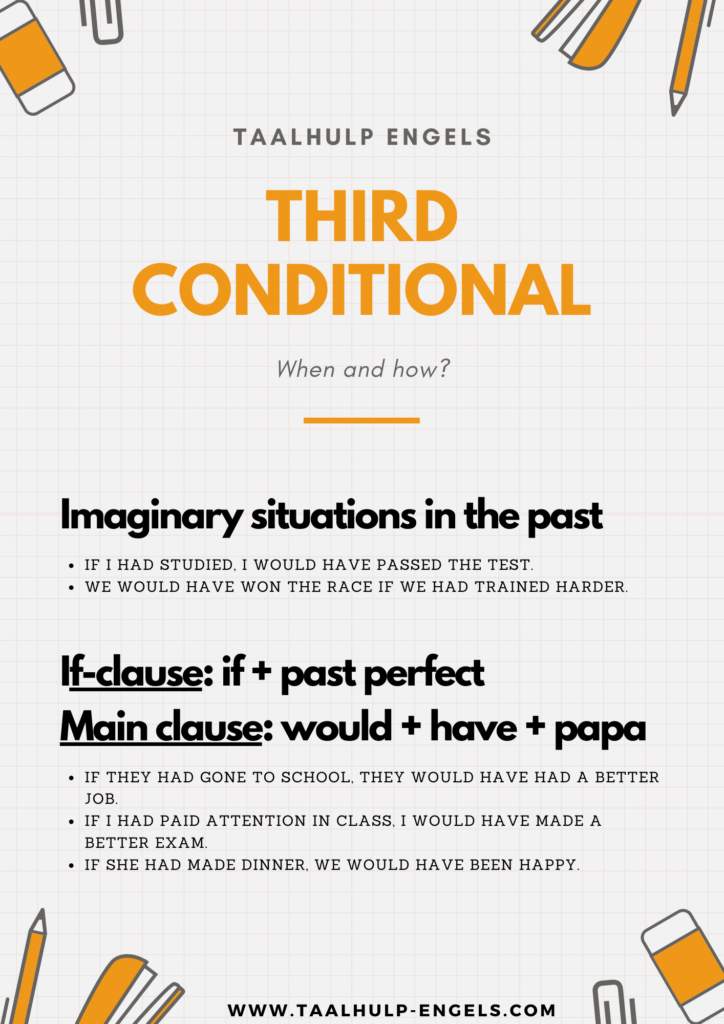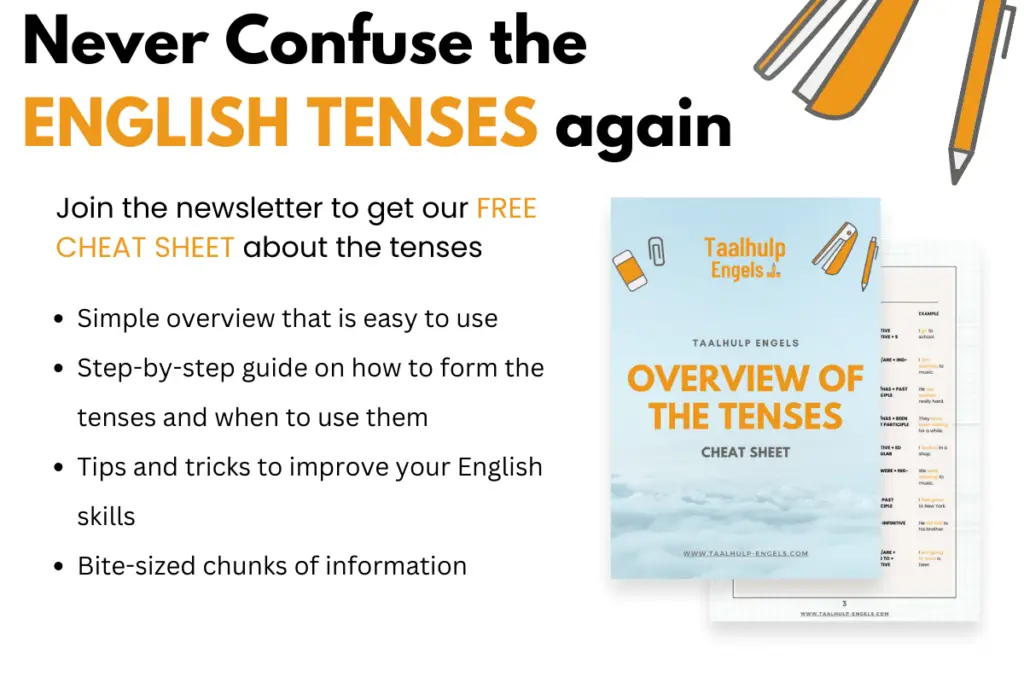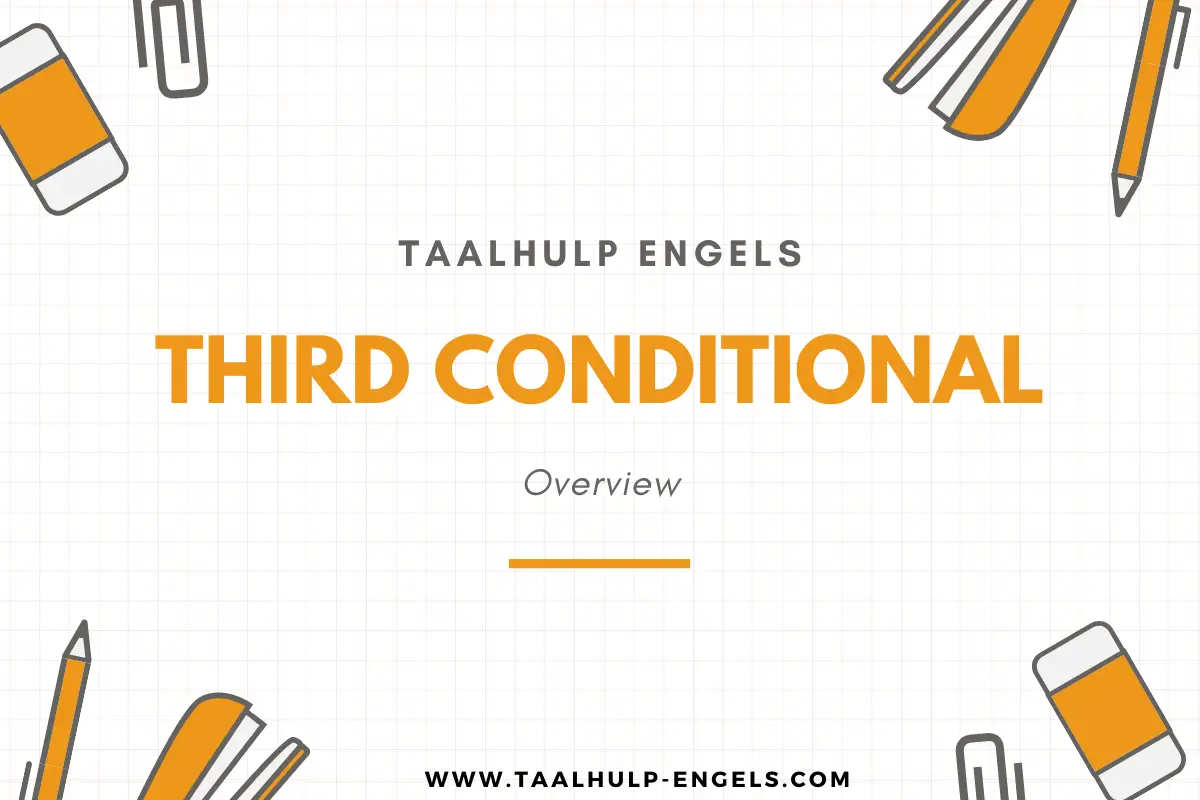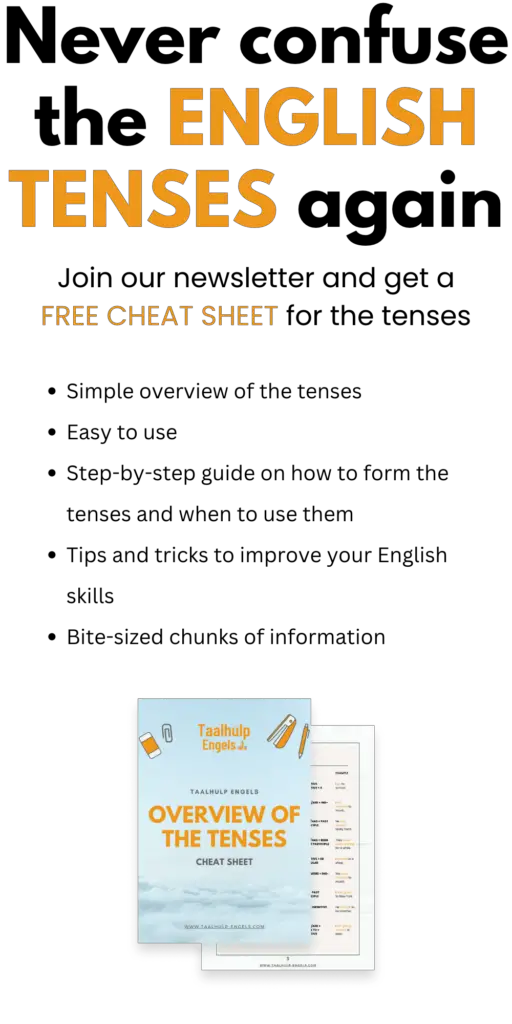The third conditional in English is another example of an if sentence that is frequently used in everyday conversations. This implies that these sentences have an ‘if’ in them so there is a condition and a result of that condition. In this article, you’ll find a complete overview of what the third conditional is, how to form it and there are also some exercises about the third conditional.
Third conditional
The third conditional is used to fantasize about things that did not happen in the past and/or imaginary situations in the past. This conditional is used to think about a possible result/outcome of something that did not happen. You’re wondering what if…

Take a look at the examples below:
- If I had studied, I would have passed the test.
- We would have won the race if we had trained harder.
Third conditional form
Before knowing which tense to use, it’s important to know that conditional sentences consist of two parts: the if-clause and the main clause. The if-clause is the clause where you would find ‘if’ and the main clause is the result of the condition (the rest of the sentence). Take a look at the examples below to see the difference:
| If-clause | Main clause |
|---|---|
| If he had given me a gift, | I would have been happy. |
| If you had listened, | you wouldn’t have been in trouble! |

When using a third conditional, you should pay close attention to the tenses of the verbs. The verb in the if-clause needs to be in the past perfect. For the verb in the main clause, you need would + have + past participle. Take a look at the examples below:
| If-clause | Main clause |
|---|---|
| If they had gone to school, | they would have had a better job. |
| If I had paid attention in class, | I would have made a better exam. |
| If she had made dinner, | we would have been happy. |
Keep in mind that the order of the clauses can be different. It’s perfectly possible that the main clause comes first:
| Main clause | If-clause |
|---|---|
| They would have had a better job | if they had gone to school. |
| I would have made a better exam | if I had paid attention in class. |
| We would have been happy | if she had made dinner. |


Exercises
Related articles
- Past Tenses Overview
- The Zero Conditional
- The First Conditional
- The Second Conditional
- Conditionals: Overview


